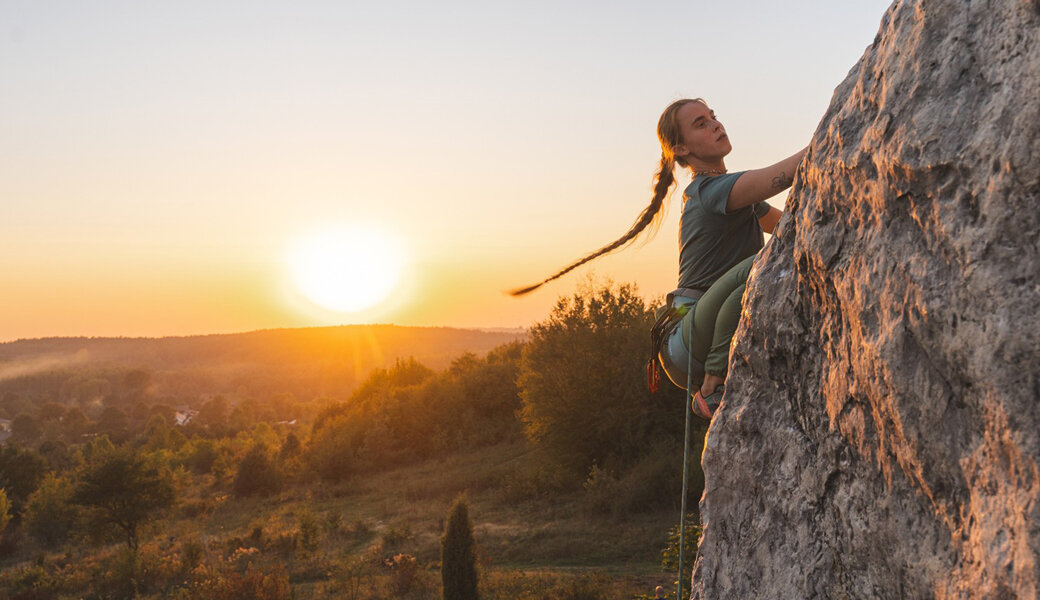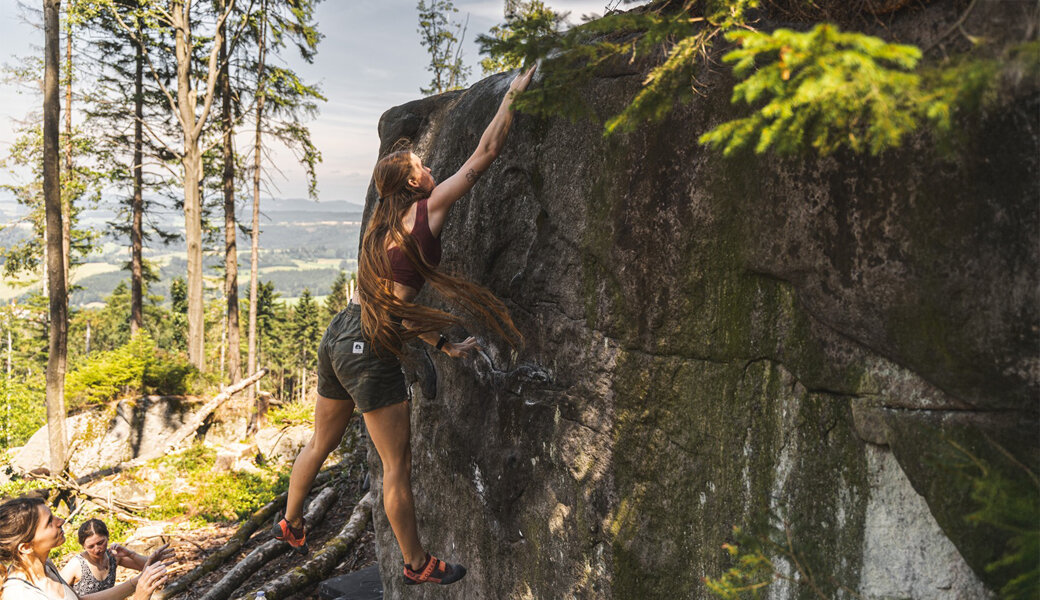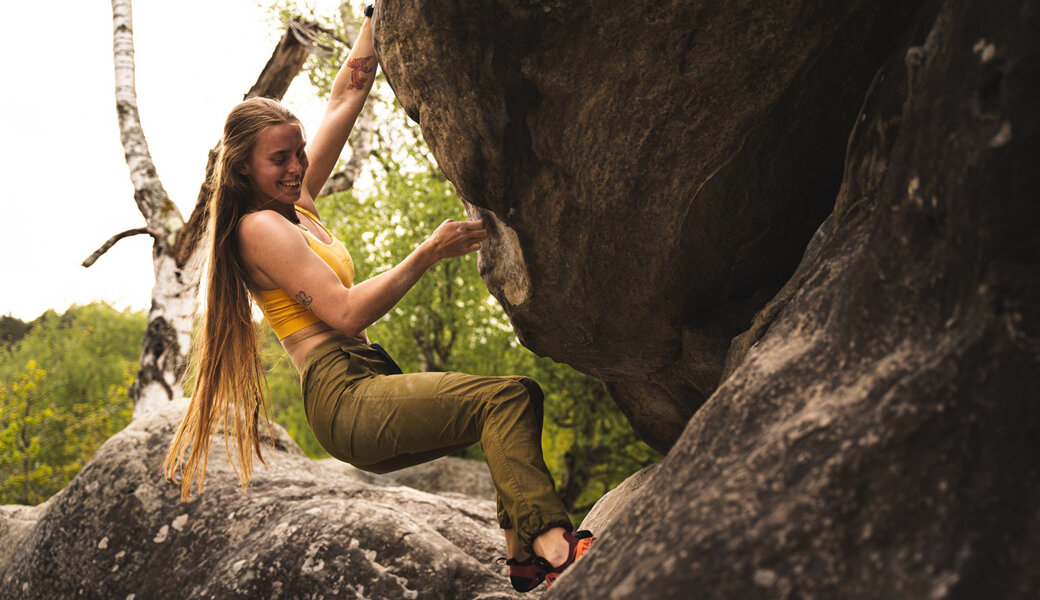Do you have a strict training schedule for when and how you train throughout the year?
I train flexibly, adapting to the competition calendar. Typically, I train 2-3 times a week, including climbing and gym sessions. I get the most satisfaction from bouldering competitions, thanks to the adrenaline and competitive spirit, but when not competing, I love bouldering outdoors.
What advice can you give to somebody looking to improve their training routine?
The most important advice I can give is to listen to your body - not every training volume or frequency works for everyone. Seek guidance from knowledgeable people but adapt it to yourself. Identify your weaknesses, push yourself in areas where you feel less confident, try different climbing styles, and most importantly, enjoy the process!
What do you think of indoor climbing gyms in relation to climbing on actual rock?
Most of my training takes place in indoor climbing gyms, as my trips to real rock have been occasional due to my studies.
What I love about climbing outdoors is the connection with nature and the challenge of figuring things out on your own, there are no pre-set holds or routes. Climbing on rock teaches patience, creativity, and humility... it’s a completely different experience than the gym, especially when you don’t do it often.
Are you able to do a one-arm pull-up? How about a single finger?
A one-arm pull-up is not something I can do yet, as I’m still building my strength. I’ve always relied more on mobility, technique, and creativity. As for single-finger pull-ups, I haven’t attempted them for my own safety! I prefer to train smart and avoid injuries while gradually building my power.
How much of the success as a pro climber is due to show and how much due to actual climbing skill?
Competitions are very important to me, but mainly because they help me grow as a climber. I believe humility and modesty are key in climbing. Success is ultimately the result of consistent work on yourself, your skills, mindset, and perseverance matter far more than the “show.”




